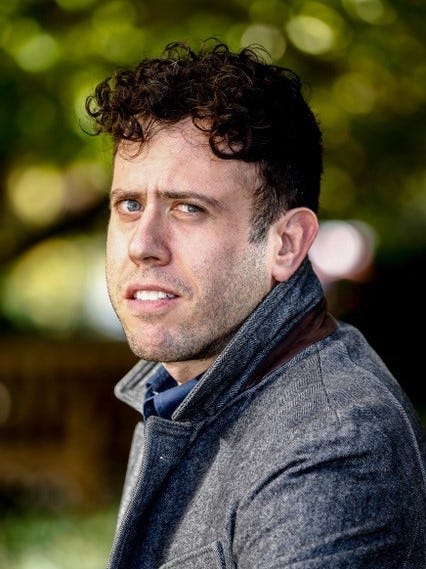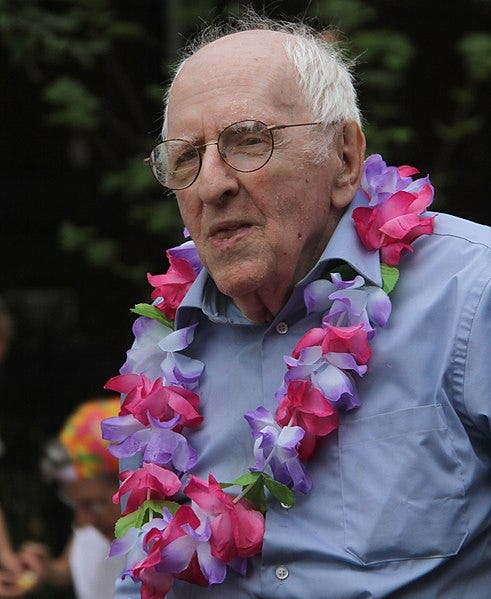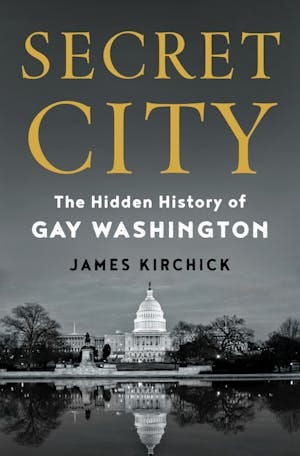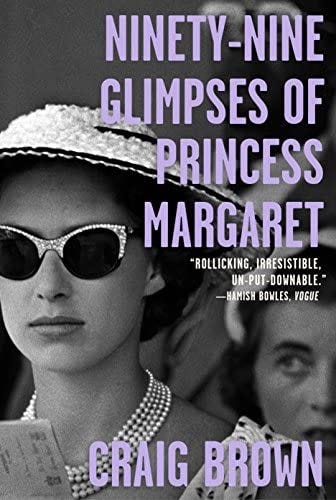Midway through my interview with James Kirchick, the author of Secret City: The Hidden History of Gay Washington casually mentioned he scooped Robert Caro, famed biographer of former president Lyndon Johnson.
While researching his book, James learned about Bob Waldron, a top LBJ staffer who was fired after rumors about his sexuality began to circulate around D.C. Waldron was so close with Johnson, he was hiding in the closet taking notes while the future president met with Bobby Kennedy at the 1960 Democratic Convention to discuss being on the ticket with JFK. Yet, Johnson still fired Waldron after learning of his sexuality.
Waldron’s story is one of dozens James shares in Secret City, a book that shows the critical role gay Americans played in every presidential administration from Roosevelt on, while they lived in fear that their sexuality would be exposed. It was one of my favorite books of 2022.
James, a columnist for Tablet magazine and writer at large for Air Mail, was kind enough to chat with me about his research and reporting process and more. Our conversation has been edited and condensed for clarity.
I understand Secret City began as a class project. How did it develop into a book?
I trace it all back to my relationship with [playwright and AIDS activist] Larry Kramer, who I got to know as a junior at Yale.
I was taking a seminar on autobiography taught by John Lewis Gaddis, a Cold War historian. At the time, he was writing George Keenan’s biography. Our final assignment was to write a biography of our own on any individual whose papers were held in the Yale archives.
I chose Larry Kramer, who had just donated his papers. So, I was one of the first people to go through them. Larry was still alive then. He didn’t die until 2020. I interviewed him and it went well. I stayed in touch after graduating.
Larry was very interested in gay history. He was very right that gay people have been basically erased from mainstream conventional interpretations of American history. After I graduated, I moved to Washington and went to work at the New Repbulic. Every so often, I would come up to New York and I would get lunch with Larry. He was always asking me questions about this senator or that historical figure. So, Larry kind of inspired [the book].
I also know Frank Kameny [who filed the first civil rights claim for wrongful termination based on sexuality after he was fired from the federal government] quite well. His life was also something that inspired the book. I was at the ceremony in 2009 when the Office of Personnel Management apologized to him on behalf of the federal government.
I had this understanding, as a gay person, that all the people before me had experiences and they didn’t pop up in books.
How’d you go about researching the book?
I started with just reading anything that is available. Books are sort of at the top of what goes into making books. Then it’s journalism, magazine articles, oral histories for presidential libraries.
Then, after going through everything that had been produced by other people, I started doing my own legwork. That’s interviewing and archival research, where I had the greatest fruit in finding new material. I did a lot of Freedom of Information Act (FOIA) requests to get files — FBI, CIA, Civil Service Commission, State Department — declassified and went through some personal paper collections.
One of the biggest scoops in the book was a scandal that I uncovered involving Ronald Reagan and allegations that he was being manipulated by a “gay cabal.” I found it in [former Washington Post executive editor] Ben Bradley’s papers at the University of Texas. I found a file on this investigation that the Post conducted but never published.
Getting FOIA requests approved is notoriously difficult. Did you come up against any trouble?
One of the problems with FOIA is it takes way too long. It takes years and years and years. There are FOIA requests that I made that have not been answered yet.
I was very lucky with one of them involving Bob Waldron. It’s a story I broke — not even Robert Caro was aware of it. It came through a FOIA request that was expedited because in the summer of 2019, I wrote a piece commemorating the 50th anniversary of Stonewall in the Wall Street Journal.
I got an email out-of-the-blue from the Archivist of the United State that said ‘You should come to the National Archives. We have lots of material on gay people in the federal government.’ I wrote him back and said I’d love to get Bob Waldron’s FBI file. I ended up with a 1000-page file.
In the FBI file was a letter Waldron wrote to the man who outed him to the Civil Service Commission. It’s a heartbreaking letter. He basically says to this guy, if you have children who have my ‘problem’ — homosexuality — I hope you’ll be more understanding and forgiving.
Lastly, any books you want to recommend?
The book on my desk right now is How Hitchens Can Save the Left by Matt Johnson. I was a young admirer of Christopher Hitchens. I learned a lot from him, spent a lot of time with him. This is a great book that basically seeks to revive Hitchens as a thinker and what liberals today could learn from him. It’s been a fascinating read for me.
I’m also reading Ninety-Nine Glimpses of Princess Margaret. I’m kind of obsessed with “The Crown” and I find Princess Margaret to be probably the most fascinating character on the show, certainly in the early seasons, the most tragic. She’s the character I’d most like to spend an evening with.
This book is fascinating but it’s not really a biography. It’s basically 99 short chapters and the author, Craig Brown, he’s read everything about Princess Margaret. Every memoir that mentions her, news article, reminiscences. It’s organized chronically and it’s just fascinating. She was an amusing person, but could also be terribly cruel, vicious and pompous. It’s hard to put down.
Thanks to James for talking with me. You can purchase Secret City here and follow him on Twitter here.
Quick reminder that next week’s newsletter will come out on Tuesday.
What to Read If is a free weekly book recommendation newsletter. Need a rec? Want to gush about a book? Reply to this email, leave a comment or find me on Twitter @elizabethheld.
If you’re reading this on Substack or were forwarded this email, and you’d like to subscribe, click the button below.
Disclosure: I am an affiliate of Bookshop.org and I will earn a commission if you click through and make a purchase.







